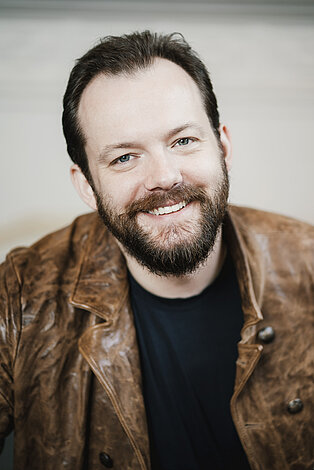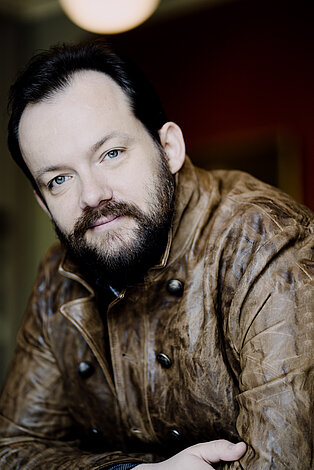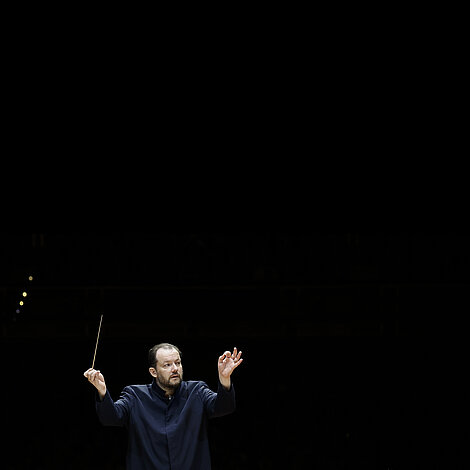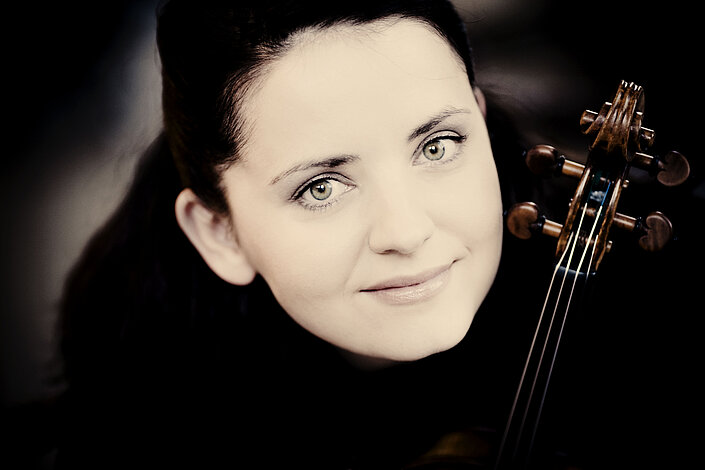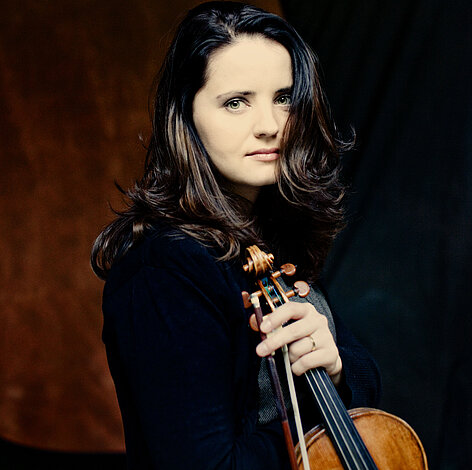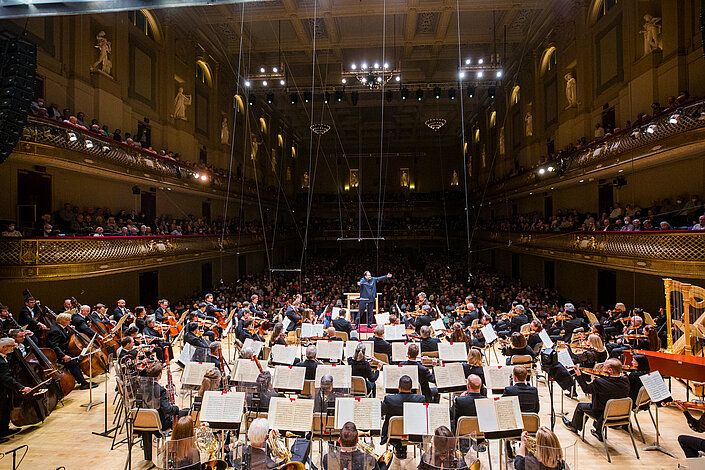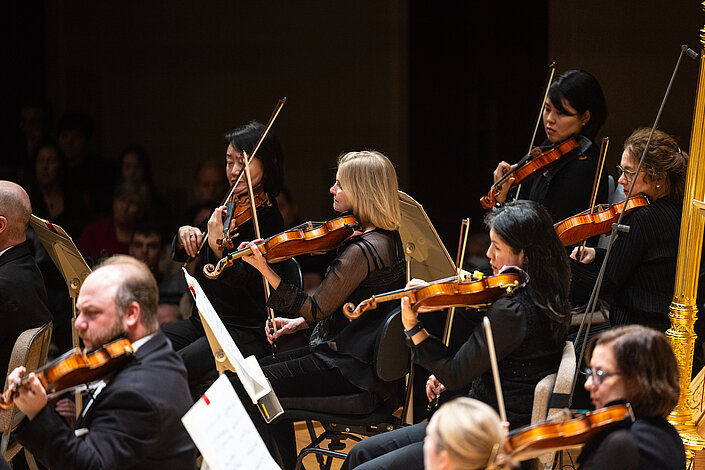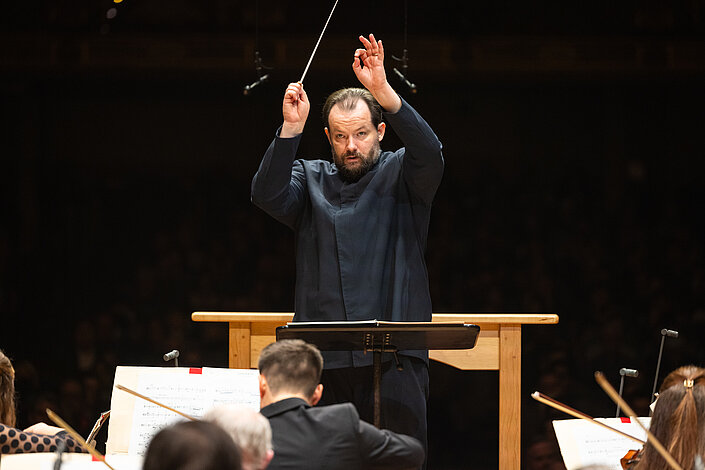
|
Symphony |
|
Boston Symphony Orchestra |
|
08.05.25 - 15.05.25 |
about the tour.
Programm 1:
Dmitrij Schostakowitsch: Konzert für Violine und Orchester Nr. 1 a-Moll op. 99 (op. 77)
**************
Dmitrij Schostakowitsch: Symphonie Nr. 11 g-Moll op. 103 "Das Jahr 1905"
Programm 2:
Dmitrij Schostakowitsch: Symphonie Nr. 6 h-Moll op. 54
**************
Dmitrij Schostakowitsch: Symphonie Nr. 15 A-Dur op. 141
Your contact persons:
An Orchestra full of experience.
Biography – about the orchestra.
Now in its 142nd season, the Boston Symphony Orchestra gave its inaugural concert in 1881, realizing the dream of its founder, the Civil War veteran/businessman/philanthropist Henry Lee Higginson, who envisioned a great and permanent orchestra in his hometown of Boston. Today the BSO reaches millions of listeners through not only its concert performances in Boston and at Tanglewood, but also via the internet, radio, television, educational programs, recordings, and tours. In response to the COVID-19 pandemic, the BSO established its streaming platform, BSO NOW (bso.org/now), extending the orchestra's offerings to a worldwide audience.
In May 2013, the Boston Symphony Orchestra began a new chapter in its history when the internationally acclaimed young Latvian conductor Andris Nelsons was announced as the BSO’s next music director, a position he took up in the 2014-15 season. Now in his ninth season as BSO Music Director, Maestro Nelsons has led the BSO in Grammy Award-winning recordings and on notable tours. He initiated a historic alliance between the BSO and the Gewandhausorchester Leipzig, of which he became Gewandhauskapellmeister in 2018.
The Boston Symphony Orchestra commissions works from today’s most important composers; its summer season at Tanglewood is among the world’s most important music festivals; it helps develop future audiences through BSO Youth Concerts and educational outreach programs involving the entire Boston community; and, during the Tanglewood season, it operates the Tanglewood Music Center, one of the world’s premier training grounds for young professional-caliber musicians. The Boston Symphony Chamber Players, made up of BSO principals, are known worldwide, and the Boston Pops Orchestra sets an international standard for performances of lighter music.
In addition to its website, bso.org, the BSO is also on Facebook, Twitter, and Instagram, and video content from the orchestra is available on YouTube. An expansion of the BSO’s educational activities has played a key role in strengthening the orchestra’s commitment to, and presence within, its surrounding communities. Through its Education and Community Engagement programs, the BSO provides individuals of all backgrounds the opportunity to develop and build relationships with the BSO and orchestral music. In addition, the BSO offers a variety of free educational programs at Symphony Hall and Tanglewood, as well as special initiatives aimed at attracting young audience members.
The Boston Symphony Orchestra gave its inaugural concert on October 22, 1881, under Georg Henschel, who remained as conductor until 1884. For nearly twenty years, BSO concerts were held in the old Boston Music Hall; Symphony Hall, now one of the world’s most revered concert halls, opened on October 15, 1900. Henschel was succeeded by the German-born and -trained conductors Wilhelm Gericke, Arthur Nikisch, Emil Paur, Max Fiedler, and the legendary Karl Muck, who served two tenures, 1906-08 and 1912-18. In 1915 the orchestra made its first transcontinental trip, playing thirteen concerts at the Panama-Pacific International Exposition in San Francisco.
Henri Rabaud, engaged as conductor in 1918, was succeeded a year later by Pierre Monteux. These appointments marked the beginning of a French tradition maintained, even during the Russian-born Serge Koussevitzky’s tenure (1924-49), with the employment of many French-trained musicians.
In 1936 Koussevitzky led the orchestra’s first concerts in the Berkshires; he and the players took up annual summer residence at Tanglewood a year later. Koussevitzky passionately shared Major Higginson’s dream of “a good honest school for musicians,” and in 1940 he founded the Berkshire Music Center (now called the Tanglewood Music Center). In summer 2019 educational offerings at Tanglewood were expanded via the inaugural season of the Tanglewood Learning Institute in the new Linde Center for Music and Learning, a four-building, multi-use complex that also provides additional concert and rehearsal space for the Tanglewood Music Center.
Koussevitzky was succeeded in 1949 by Charles Munch, who led the BSO on its first international tours. In 1956 the BSO was the first American orchestra to tour the Soviet Union. Erich Leinsdorf followed Munch in 1962; William Steinberg began his relatively brief tenure in 1969. Seiji Ozawa became the BSO’s thirteenth music director in 1973. His historic twenty-nine-year tenure extended until 2002, when he was named Music Director Laureate. In 1979, the BSO, under the direction of Seiji Ozawa, was the first American orchestra to tour mainland China after the normalization of relations. The first American-born conductor to hold the position, James Levine was the BSO’s music director from 2004 to 2011.
Today, the Boston Symphony Orchestra continues to fulfill and expand upon the vision of its founder Henry Lee Higginson, to bring a world-class musical experience to the people of Boston.
SEASON 2023/2024
Solist/-in

Baiba Skride © Marco Borggreve
Baiba Skride’s natural approach to music-making has endeared her to many of today’s most prestigious conductors and orchestras worldwide. She performs regularly with orchestras such as the Berliner Philharmoniker, Gewandhausorchester Leipzig, Boston Symphony Orchestra, Chicago Symphony Orchestra, New York Philharmonic, Concertgebouworkest, Symphonieorchester des Bayerischen Rundfunks, Orchestre de Paris, London Symphony Orchestra, Royal Stockholm Philharmonic Orchestra, Oslo Philharmonic, Sydney Symphony Orchestra and NHK Symphony Orchestra. She enjoys close collaborations with notable conductors such as Marin Alsop, Christoph Eschenbach, Edward Gardner, Susanna Mälkki, Andris Nelsons, Yannick Nézet-Séguin, Andres Orozco-Estrada, Santtu-Matias Rouvali, Dima Slobodeniouk, John Storgårds, Juraj Valcuha and Kazuki Yamada.
Highlights of the 2023/24 season include her much-anticipated return to the Berliner Philharmoniker with Andris Nelsons for performances of Gubaidulina’s “Ich und Du” with broadcast for the Digital Concert Hall. She performs this same concerto with hr-Sinfonieorchester Frankfurt with Maxime Pascal, and the Berg violin concerto with Münchner Philharmoniker and Andris Nelsons. Passionate about nurturing young talent, Skride returns to the jury of the prestigious Queen Elisabeth Competition, the same competition that brought her international acclaim when she won first prize in 2001.
In 2024, Baiba Skride released her latest album featuring Britten’s violin concerto and double concerto, recorded with Marin Alsop and the ORF Vienna Radio Orchestra. It has received standout reviews, with BBC Music Magazine writing ‘the subtlety of her phrasing and range of her tonal palette reveal Skride as a Romantic player of real stature.’ Her prolific discography under the Orfeo label includes all Mozart concertos with the Swedish Chamber Orchestra and Bartók with the WDR Sinfonieorchester, both with Eivind Aadland, as well as an American album featuring Bernstein, Korngold and Rózsa with the Gothenburg Symphony Orchestra and Tampere Philharmonic Orchestra under the baton of Santtu-Matias Rouvali. In 2022 she released “Violin Unlimited” which creatively brings together four composers of the late 1890s who were drawn to Berlin.
In the 2022/23 season, Baiba Skride completed her recordings of both Shostakovich violin concertos for Deutsche Grammophon with Andris Nelsons and the Boston Symphony Orchestra, due for release at the end of 2024.
Baiba Skride is an internationally sought-after chamber musician and performs regularly at festivals and concert halls across the world, including the Concertgebouw Amsterdam, Musikverein Wien, Wigmore Hall London, Louvre Paris, plus tours in North America and Australia.
Skride was born into a musical Latvian family in Riga and continued her studies from 1995 with Petru Munteanu at the Rostock University of Music and Theatre. She plays the Yfrah Neaman Stradivarius kindly on loan by the Neaman family through Beare’s International Violin Society.
SEASON 2023/2024
Listen, See & feel the music.
Picture Gallery
You need high-resolution images and biographies? Please use this short form. We will send you a download link soon.
Need more material? Feel free to ask:



